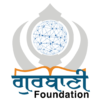Frequently Asked Questions
The questions have been classified into various fundamental terms.
NaaM (ਨਾਮੁ) in Gurbani
The NaaM (ਨਾਮੁ) is called so because it is based on NaHo (ਨਾਹੁ).
Capital M in NaaM is related to pronunciation of NaaM. The capital M signifies the pronunciation of the Onkre sign of ਨਾਮੁ.
NaaM signifies the omnipresence of the Creator.
Sat NaaM is continuity of His omnipresence.
No. NaaM is not related to name of God. God has no specific name.
Awareness of NaaM according to Gurbani can transform a person into a spiritually awakened, trustworthy and truthful. If you want to be one, realization of NaaM can benefit you significantly.
Awareness of ‘NaaM’ brings about realization of surveillance by God at the time. This realization significantly encourages one to behave. This self-imposed discipline transforms a person into truthful and trustworthy individual.
JaP (ਜਪੁ) in Gurbani
JaP is so called since it is derived from the word ‘ਜਾਪਣਾ’. As we say, ਮੈਨੂੰ ‘ਜਾਪਦਾ’ ਹੈ.
The capital P in JaP signifies the pronunciation of onkre sign of ਜਪੁ.
JaP means to know, to understand, to realize.
NaaM JaP is to realize the omnipresence of God.
‘ਜਪਉ’ means that ‘I’ understand/realize and ‘ਜਪਹੁ’ means that ‘you’ understand/realize.
No. The pronunciation and meaning as enshrined in Gurbani by Guru Sahib already reveals clearly that ਜਪਉ is for first person (‘me’) and ਜਪਹੁ is for second person singular (‘you’) or plural (‘all of you’).
Nanak in Gurbani
ਨਾਨਕੁ (with onkre sign) signifies the stamp of the ideology of Nanak.
There is significant difference. Nanak (without onkre sign, i.e. ‘ਨਾਨਕ’) signifies an addressal to one’s mind.
‘ਨਾਨਕ’ of ‘ਜਨੁ ਨਾਨਕ’, in a message of Gurbani, is an addressal to one’s mind whereas ‘ਜਨੁ’ signifies that the subject of the message is a singular.
‘ਨਾਨਕ’ in ‘ਜਨ ਨਾਨਕ’, in a message of Gurbani, is an addressal to one’s mind, whereas ‘ਜਨ’ signifies that the subject of the message is a plural.
‘ਜਨੁ ਨਾਨਕੁ’ is a humble reference about oneself by Guru Sahib.
MaN (ਮਨੁ) in Gurbani
The thoughts of an individual are collectively called as MaN (‘ਮਨੁ’).
All actions are linked to the words one speaks. All words one speaks are linked to the thoughts that originate within a person. Thus, if the thoughts get corrected, the words and actions improve, as well . Thus, Gurbani focuses on the thoughts i.e. ‘ਮਨੁ’.
Yes. Whenever there is a mention of ‘ਮਨ’ in any message of Gurbani, it is related to thoughts.
As an organ of body, heart is unrelated to thought generation within. However, heart is poetically associated with feelings. Accordingly, at times, broken heart poetically signifies hard feeling!
Thoughts originate from mind. Mind is the functional aspect of brain. Physically, one can locate and examine brain, but not the mind of an individual. So, MaN, the thoughts, cannot be examined physically.

